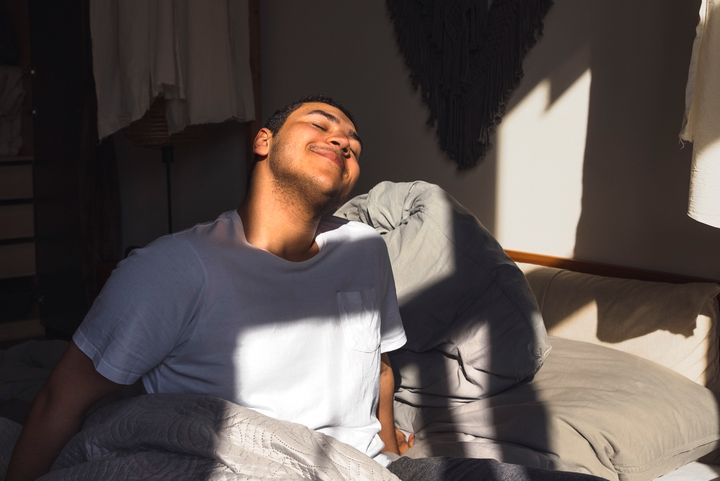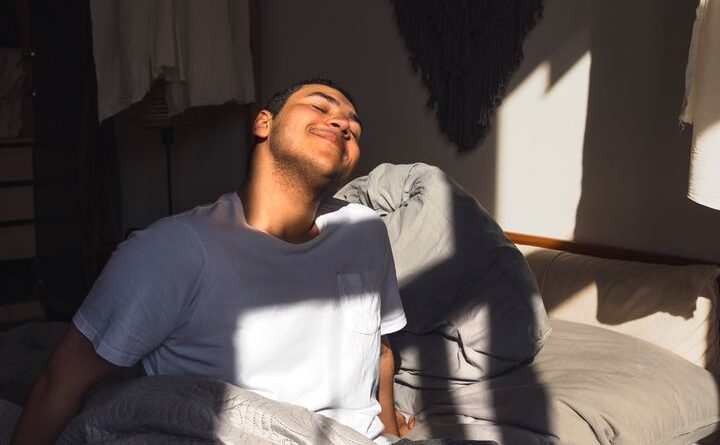That is why it is so important to get sunlight every morning
On a busy morning before work or school, looking for a morning sun may feel more like a pleasure than a necessity.
But there are many reasons why you should aim to get the information as quickly as possible – and they go beyond the emotional benefits that most people get.
In particular, morning sunlight can help you sleep better and prepare you for the day ahead, experts say. Here’s the process:
The sun is a symbol of our daily activities.
“We have this word called ‘zeitgebers,’ which is actually German for ‘time giver,'” said Elizabeth “Birdie” Shirtcliff, a research professor at the Center for Translational Neuroscience at the University of Oregon. It’s environmental cues that “help us know how to set up our daily rhythms.”
These timers affect many factors, including your arousal response to cortisol, which is your body’s “get up and go” stress hormone. [signal] morning,” Shirtcliff explained. It helps you wake up and feel ready for the day. And what gives the best time in the world is the sun.
“The arousal response of cortisol actually starts with the anticipation of sunrise, so it starts to rise during a little sleep. When we expect to wake up, we have this increase in cortisol, and in a few minutes the first thing we wake up, our cortisol levels go up by about 70% – so the biggest stress on your body is just waking up,” said Shirtcliff. .
When that cortisol peak doesn’t happen, people can feel tired and sluggish throughout the day, he said.
But some of those points that give time are “built into our daily events, things like sunlight, or mealtimes, or when a noise breaks out in the street. All of them give time to prepare our body to prepare for what is about to happen,” Shirtcliff explained. “Waking up in the morning, having sunlight – it’s a good way to help the body’s rhythm your getting ready for the day.”
Additionally, exposure to sunlight in the morning “sends messages to our brain to produce cortisol and suppress melatonin,” Saru Bala, an Arizona naturopath, previously told HuffPost.
Melatonin is known as the “sleep hormone.” Our body produces the most melatonin at night and slows down during the day.
It is essential for our body’s natural clock.
Sunlight also plays an important role in our body’s natural clock, or circadian rhythm, said Dr. Sujay Kansagra, director of the pediatric neurology sleep medicine program at Duke University Medical Center and the face behind the popular @thatsleepdoc Instagram account.
Our circadian rhythm keeps us awake during the day and helps us sleep at night, Kansagra said — and sunlight plays a big role.
“They did these [lab] past experiments where there was someone who didn’t know what time it was ― no dark signal,” he said.
Experiments have found that the human body’s natural clock is actually longer than a 24-hour day — closer to about 24.1 to 24.2 hours, Kansagra said.
If our bodies could stick to that cycle properly, we would like to sleep later. But our circadian rhythm kicks in every morning when we expose our brains and eyes to light, and that “helps us move. [it] a little while ago. So we don’t run on a 24.2-hour cycle, we run on a 24-hour cycle,” Kansagra said.
That’s why getting a morning sun is very beneficial for those who have morning responsibilities like work or school. “Having light early can be very beneficial in making sure your circadian rhythm isn’t too late,” he said.

Sunlight is important, whether you’re outside or opening your bedroom curtains.
When it comes to your circadian rhythm, nothing beats getting sunlight outside, but if your office gets a lot of morning light, it can be stronger too, according to Kansagra.
“It’s still going to be bright enough to do what it needs to do to reset your circadian rhythm,” he said. It’s not that you have to be outside, but it’s a general glow.
If you always exercise outside in the morning, you are also in luck. “Exercising in the morning is really good for you, especially for that strengthening part,” said Shirtcliff.
There’s no set formula for how much sun you need, but 15 to 30 minutes outside is probably enough, said Dr. Jawairia Shakil, an endocrinologist at Houston Methodist Hospital. If you get sun through your windows, you may need more than 30 minutes to get the benefit, Shakil added.
Timing is of the essence, so you should aim to get some sunlight within the first few hours of waking up, Kansagra said. Daylight, which starts around noon, doesn’t have the same effect on your natural body clock.
All of this is especially important for night owls and seasonal sufferers.
While everyone benefits from morning sunlight, it can be even more important for people who tend to sleep late, as they may be able to “sleep better and wake up later,” Kansagra he explained.
Morning sun can help night owls feel more alert in the morning (they don’t sleep much) and advance their circadian rhythms so they tend to wake up earlier.
In addition, it is very important for people with diabetes.
“There’s actually some data about seasonal depression that happens when there’s not a lot of sunlight and people don’t go outside much, and that’s negated by the morning sun, Shakil said.
Support Free Journalism
Support HuffPost
Are you already involved? Log in to hide these messages.
But whether you fall into these categories or not, getting some sunlight every morning should be part of your routine, Shirtcliff said.
You shouldn’t expect to see huge sleep cycle and energy gains after one morning of sun. But if you practice it, you can reap the benefits.
Support Free Journalism
Support HuffPost
Are you already involved? Log in to hide these messages.
#important #sunlight #morning
